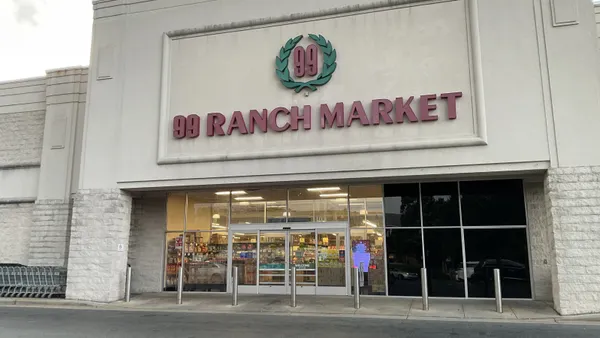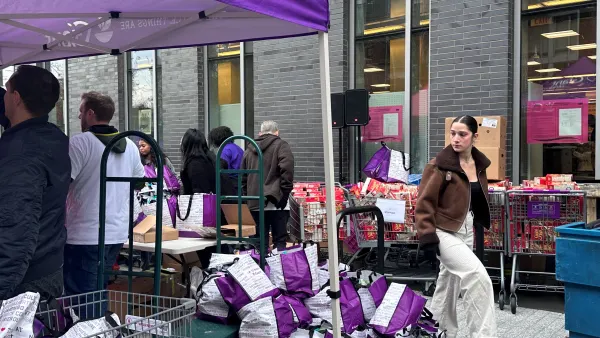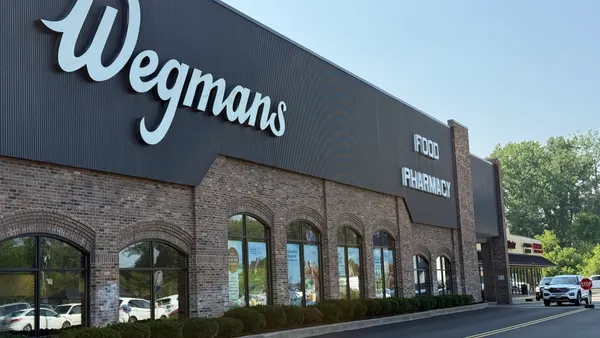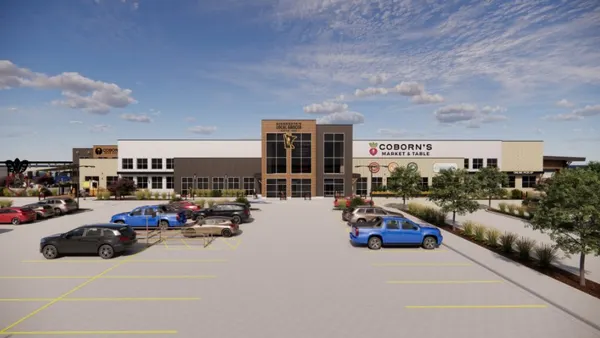Dive Brief:
- Popular Korean grocer PK Market will open its first U.S. location in downtown Los Angeles next year, reported the Los Angeles Times. The company has leased the first three floors — roughly 52,000 square feet in total — of a former department store that opened in 1917.
- A mixture of a grocery store, casual dining and prepared foods to go, the U.S. location will include an eatery for grilled meats and fresh sushi offerings in the seafood department. The company expects to compete with other high-end grocers in the area such as Whole Foods and a soon-to-open Erewhon market.
- PK Market is a subsidiary of Shinsegae, a massive retail company that operates department stores, supermarkets and convenience stores, accumulating more than $28 billion in revenue in 2017.
Dive Insight:
PK Market is a fairly new concept for Shinsegae, with only two locations in Korea and a third in the works. The stores, which offer groceries as well as dining options, are meant to appeal to young, well-heeled shoppers eager to try new culinary experiences.
The first U.S. location on the corner of 7th Street and Olive in L.A. puts PK Market within blocks of some major specialty competitors, including Whole Foods. Both grocers appeal to a higher-end demographic and include appealing features such as an in-store bar and restaurant.
Beyond this initial store, PK Market will have its challenges expanding in the crowded, Southern California grocery market. Several big names have tried and failed. For example, British giant Tesco was unable to keep afloat Fresh & Easy, eventually filing for Chapter 11 and Northwestern chain Haggen had plans to open in the area, but ended up pulling out.
But it should be noted that some of those grocers — most notably Fresh & Easy — had operational issues that hindered their performance. Morevoer, PK Market checks a lot of boxes when it comes to what consumers are looking for in a modern supermarket. The grocer offers a unique experience and plenty of meal options. Shoppers can dine on fresh sushi near the fish counter, or have a meal right next to the meat department. A Korean twist on food offerings could work to the grocer’s advantage, as well, due to the ethnic diversity of the city where it is testing.
According to research firm IbisWorld, demand for ethnic products has been growing along with the Hispanic and Asian populations in the U.S. Plus, income is rising among Hispanic and Asian consumers, giving grocers an opportunity to grow basket size with these shoppers.
A 2016 Neilsen study showed that multicultural groups also spend more in meat and seafood departments, with African Americans spending 44% of their total fresh food dollars on items like chicken wings, crab and pork ribs, while Asian Americans spend twice as much on seafood.
There is another Korean supermarket chain that has been building its success in the U.S. over the past few years: H Mart. The chain operates 66 stores across 12 states, with some markets offering delivery through Instacart. While suburban and urban locations vary, H Mart offers more than just fresh and packaged foods. For example, many locations feature a food court and a café with Korean and European baked goods and coffee. H-Mart also carries Korean cosmetics, K-Pop merchandise, clothing, home goods, stuffed animals and stationery.
PK Markets' ability to reach a diverse range of consumers combined with its unique in-store eateries and experiences means it has a good chance of standing out in the Southern California market.









